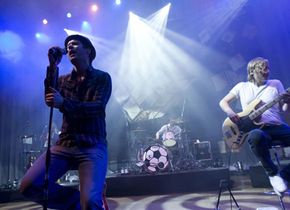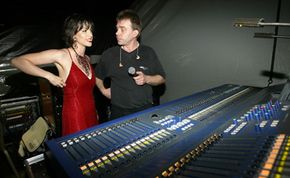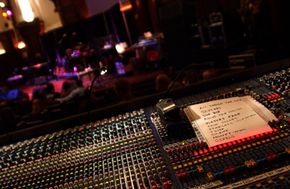The guitar player can wail, and the drummer can crash away on the skins. But if the band you're listening to live is sounding really on, there's a good chance an unseen member of the band is having a good night, too.
That person is the sound engineer, and he's responsible for getting every subtle tweak of voice and instrument into your ears in a balanced way.
Advertisement
All instruments and voices aren't created equal. For instance, some instruments are louder than others while the acoustic signature of some instruments can get lost. A live sound engineer's job is to wrestle with these factors and coax the correct overall sound out of any situation. The fact is, the band can have a great night but the audience may never know it if the live audio engineer isn't doing their job properly. In many ways, the live sound engineer is as important to a live band performance as any member on stage.
Good live sound engineering and concert sound engineering requires more than plugging in some amplifiers and turning a few volume knobs. It demands knowledge of acoustics and electronics combined with the collaborative skill of an artist to work with a band or producer to give them the sound they want. Every venue is different -- from the cozy bar to a medium-sized concert hall to an outdoor arena -- and each brings its own challenges to audio engineering. But it's the live sound engineer's job to tame acoustics and bring the musicians' efforts home to the audience.
What exactly is live sound engineering? What equipment is involved with live sound engineering? What skills do live sound engineers need? Read on to find out.
Advertisement




